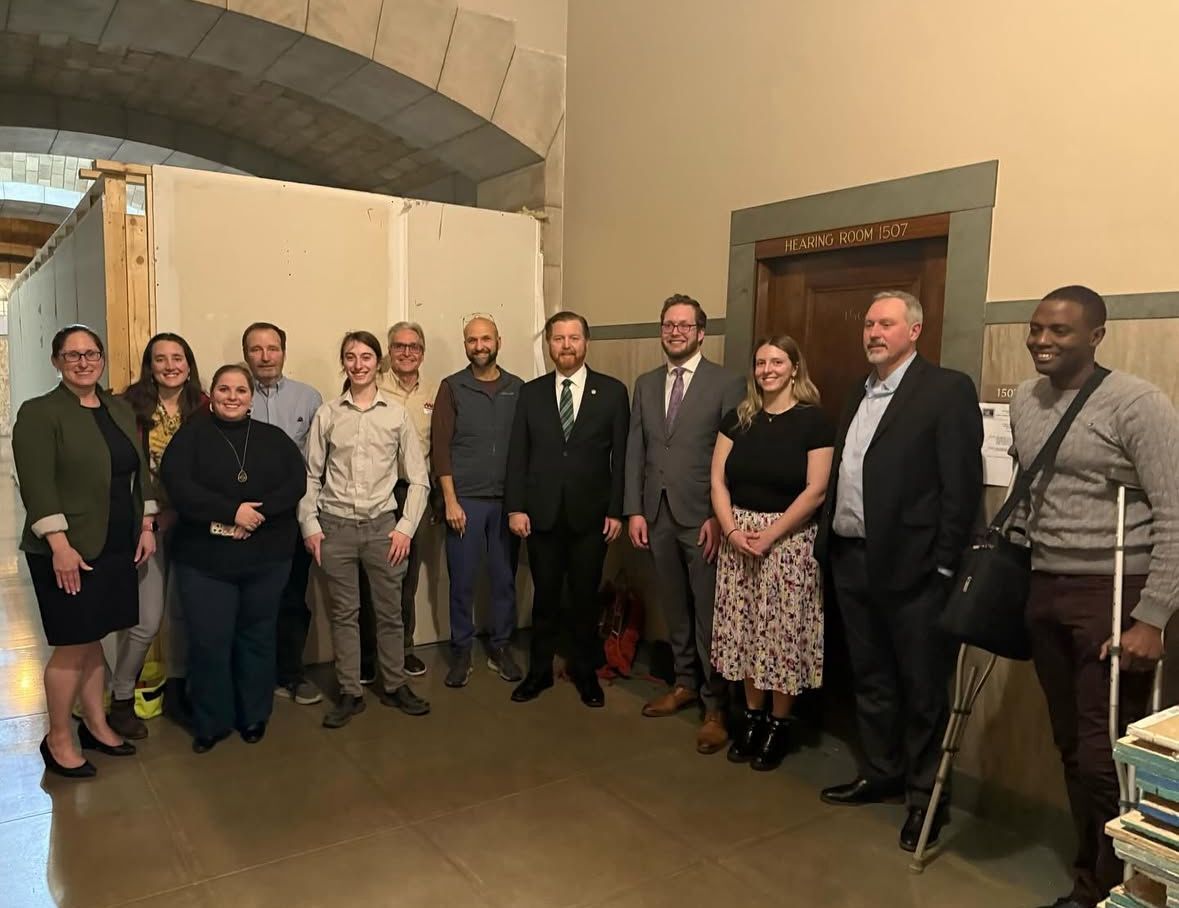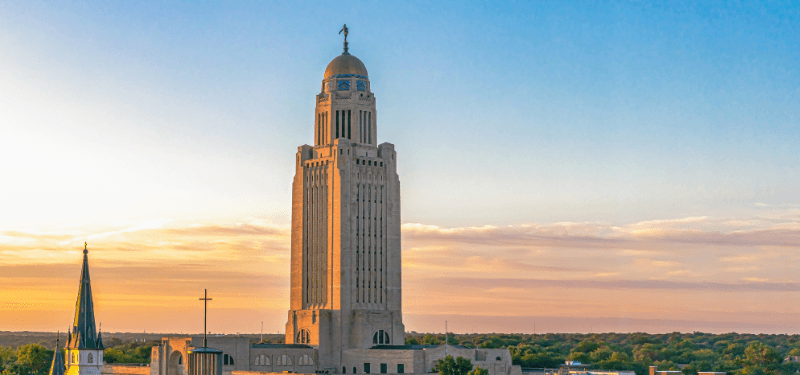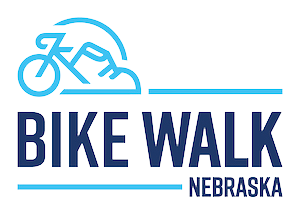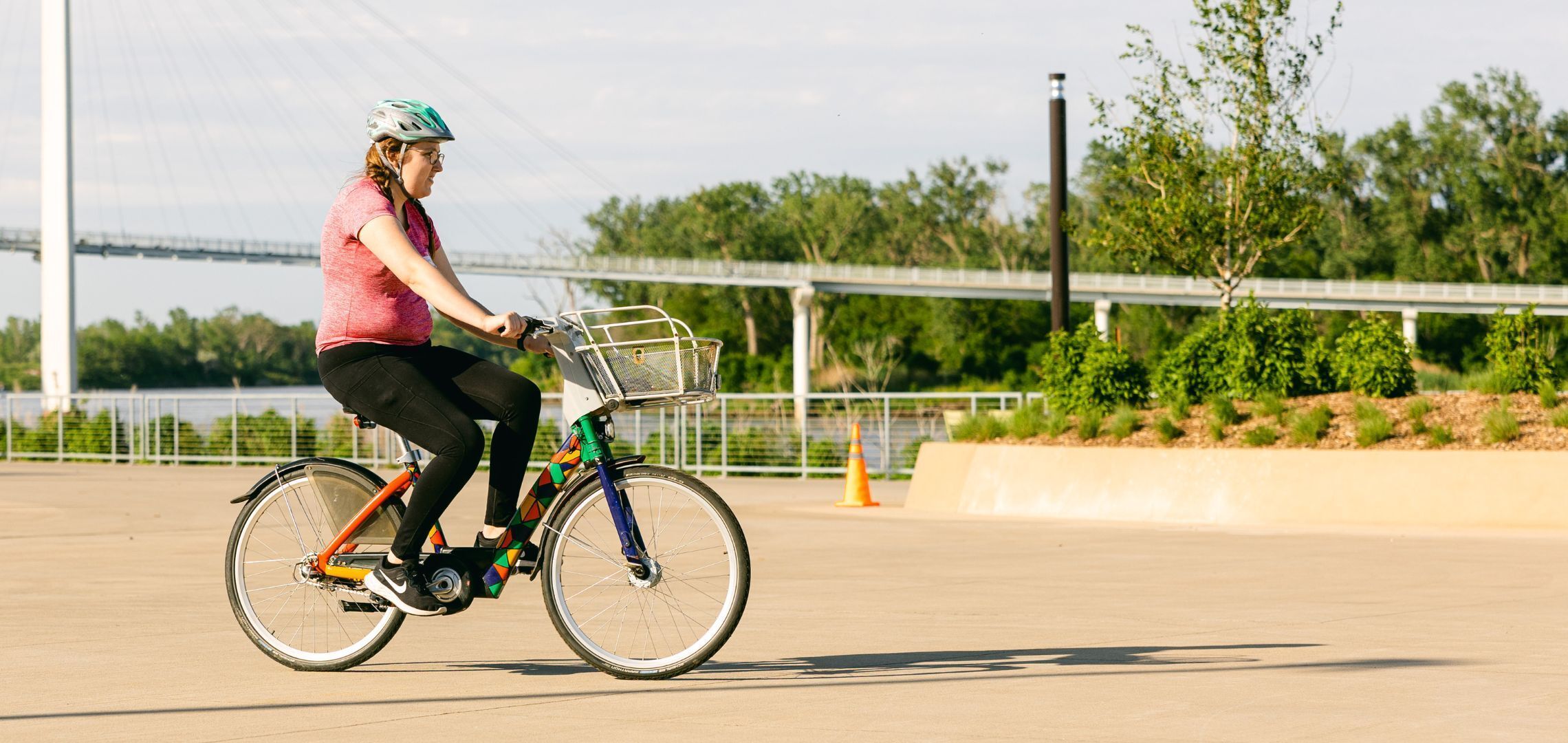Policy is the most sustainable and long-lasting change, allowing us to holistically address all the factors impacting pedestrian and cyclist safety. Here are the bills we're tracking in 2025, focusing on streamlining the process for infrastructure, influencing drivers' behavior change, or supporting a just judicial process post-crash.

Safety Bills
Our priority is safety. Data shows the state is statistically moving backwards in terms of safety with a 122% increase in cyclist fatalities and 14% increase in pedestrian fatalities in 2024. Our state desperately needs policy to help curtail the upward trend.
-
LB 530 (Co-Sponsor): Vulnerable Road User Law
Update (4/9): The Vulnerable Road User bill has been chosen as one of two of the Judiciary Committee’s priority bills. The next step would be to advance LB 530 to General File where all senators can hear, debate, and amend the bill.
----
A vulnerable road user is almost anyone not in a car, including, but not limited to, pedestrians, bicyclists, motorcyclists, road construction or utility workers, or someone operating farm equipment.
This bill would create a formal definition of a Vulnerable Road User within state statute, and is designed to deter unsafe behavior, and encourage safe driving practices. It fortifies sentencing options for drivers responsible for injuring or killing vulnerable road users, supporting justice for victims' families.
Additionally, this bill enhances the existing 3-foot passing law to include the requirement for drivers to “change lanes to pass” when possible, and will increase fines for excessive speeding.
-
LB 594 (Proponent): Hands Free Driving Bill
Update (4/9): LB 594 had a hearing on February 24th, but there have not been announcements or advancements since.
------
Requires all drivers to use hands-free technology while operating a motor vehicle, meaning no texting while driving. It changes the use of a handheld device (smartphone) from a secondary to a primary offense, meaning drivers can be pulled over for having their phone in their hand.
Nebraska is only one of four states without a law making using a phone while operating a motor vehicle a primary offense, and distracted driving is a huge safety concern for road users. In 2024, 14% of all traffic deaths in the U.S. involved the use of a cell phone, making texting six times more likely to result in a crash than driving under the influence of alcohol.
In the past, we’ve been cautious to support distracted driving bills due to their complexity and cause for concern for the perpetuation of inequitable enforcement towards marginalized demographics. However, the language in this bill is a step forward from previous years and we need to use as many tools as are available to us to curtail the upswing in crashes.
Bike Walk Nebraska also strongly advocates for continued education and increased recognition of contributing law enforcement behaviors to inequitable enforcement.
-
LB 73 (Opposed): Decrease in Required Hours for Law Enforcement’s Continued Education
Update (4/9): LB73 had a hearing in the Judiciary Committee on March 20th but has not been advanced.
-------
In our work, it’s not uncommon for us to come across cases where an officer's lack of knowledge around vulnerable road user laws and safety is a detriment to those we advocate for. In fact, the legal problems created by misinformed officers and errors on reports have been the single, largest barrier to justice for victims and their families.
Bike Walk Nebraska is opposed to any bill decreasing the education requirement for law enforcement, while acknowledging the need to balance training with job duties.
-
LB 600 (Neutral) & 616 (Proponent): Automated Red Light & Speeding in Work & School Zome Cameras
Update (4/9):
LB600: On March 28th, LB 600 was heard before the Judiciary Committee. Bike Walk Nebraska changed our stance from strong proponent to neutral upon hearing the bill had been amended while in the hearing.
The amendment removed language relating to school zones and all highway workers, opting to include only NDOT workers. BWN advocates for the safety of all road users and would like to see our concerns addressed in this or a future legislative session.
Currently, the bill has not been moved out of the Judiciary Committee.
LB 616: On March 28th, LB616 was heard in front of the Judiciary Committee. Bike Walk Nebraska testified in support of this legislation to address the prevalence of speeding on Nebraska roads and deter unsafe driving practices.
Spike Eickholt brought up legal concerns regarding civil disciplinary actions (served a fine or STOP class) for a criminal offense (traffic violation). Spike noted that everyone deserves due process and an opportunity for trial. Senator John Cavanaugh, the bill’s introducer, agreed with those concerns and said he would work with Spike to address these issues in the bill.
Currently, the bill has not been moved out of the Judiciary Committee.
-------------------
The two bills would authorize use of automated cameras for speed enforcement in school zones and work zones, and for enforcement of drivers who run a red light. Cameras will capture the license plate of drivers who speed, and then a ticket will be automatically issued.
In Nebraska, 17% of fatal crashes were related to speed from 2017 - 2022. Bike Walk Nebraska is a proponent of these bills as the focus on license plates decrease the perpetuation of inequitable enforcement, and statistics show the efficacy of automated enforcement in changing driver’s behavior, ultimately leading to safe roads for all.
Progress Bills
Below are bills introduced which have the potential to either support or deter progress for active transportation in the state.
- LB 18 (Proponent): The Installation of Wireless Utility Poles to Meet ADA Requirements
- LB 23 (Proponent): Grants for Bike Sharing Programs
- LB 628 (Proponent): A Property Tax Exemption for Land Owners Providing Easements for Trails
- LB 449 (Opponent): Eliminates Established Priority of Preservation & Regionalizes Revenue
- LB 662 (Opposed): Requires State Entities to get Legislative Approval for Grants/Funds in Relation to Maintenance
-
LB 18 (Proponent): The Installation of Wireless Utility Poles to Meet ADA Requirements
Update (3/21): LB18 had a hearing on February 11th in the Transportation & Telecommunications Committee, but has not been advanced.
------
After the 2019 - 2020 legislative session, a bill was passed with unintended language that led to the installation of a wireless utility pole being installed in the middle of a sidewalk in Omaha. The following back and forth between public officials, the telecommunications company, and mobility advocates ultimately led to the need for a bill (LB 18) to be passed counteracting the previously passed legislation.
Bike Walk Nebraska supports this bill as safe access to sidewalks is a vital part of keeping our communities connected and safe, and this is an example where policy has implications on the everyday lives of Nebraskans.
-
LB 23 (Proponent): Grants for Bike Sharing Programs
Update (3/21): LB23 had a hearing on January 28th in the Transportation & Telecommunications Committee, but has not been advanced.
-----------
This bill would allow the Department of Economic Development to develop a grant process for nonprofit bike share operators in Nebraska.
Accessible, safe, and enjoyable bike-share systems impact economic development, infrastructure, education, health, public safety, job opportunities, the environment, and more. Working alongside Heartland Bike Share for years, we’ve seen the impact of effective, connected bike share systems in a community.
Bike Walk Nebraska is a long-standing proponent of bike share systems in the state.
-
LB 628 (Proponent): A Property Tax Exemption for Land Owners Providing Easements for Trails
Update (3/21): LB 628 had a hearing on February 20th in the Revenue Committee and was received well. Senators Rita Sanders and George Dungan have added their names to the bill in support of its advancement. The Revenue Committee moved it to General File to be heard and debated by all senators.
------
A property tax exemption for landowners, municipalities, counties, accredited land trusts, and nonprofit organizations who provide recreational trail easement on their property of ten cents per square foot.
Bike Walk Nebraska is a proponent of this bill because it generates the opportunity for a mutually-beneficial relationship between landowners and recreational trail projects.
-
LB 449 (Opponent): Eliminates Established Priority of Preservation & Regionalizes Revenue
Update (4/9): LB449 had a hearing on February 10th in the Transportation & Telecommunications Committee, but has not been advanced.
------
We opposed this bill in 2024 and will again this year. Although the focus of the bill appears to be about how state funding is distributed for transportation projects, of the language the bill removes the statement: “The department shall consider the preservation of the existing state highway system asset as its primary priority…”.
Our opposition is based on the most fiscally responsible policy to be the preservation of transportation systems, rather than the proliferation of more highways that we can’t afford to maintain.
-
LB 662 (Opposed): Requires State Entities to get Legislative Approval for Grants/Funds in Relation to Maintenance
Update (4/9): LB662 had a hearing on February 26th in the Government, Military and Veterans Affairs Committee, but has not been advanced.
--------
We believe this bill to be a deterrent to progress. Bike Walk Nebraska predominantly works with the Nebraska Department of Transportation and Nebraska Game & Parks Commission. Both of these agencies routinely apply for federal grants for a majority of projects.
Requiring state agencies to gain legislative permission prior to applying for vital funds already designated for our state, would overcomplicate already intensive projects and funding processes.
We are in favor of efficient government processes and establishing fiscally responsible policies, but this bill is not the way to achieve it.
Monitoring as they Progress
We will continue to monitor the following bills as they progress through the legislative session as there’s potential for them to influence active transportation pursuits in Nebraska.
-
LB 220 (Proponent): Requires the inclusion of data and research in relation to ADA impacts for all future legislation
Update (4/9): LB220 had a hearing on March 6th in the Executive Committee, but has not been advanced.
------
Safe mobility for Nebraskans who live with a disability can be unintentionally impacted by otherwise well-meaning legislation.
An example of why this is needed can be found by looking back at the 2019-2020 legislation session when a bill was passed for the installation of wireless utility poles, and it led to a situation where a new utility pole was installed in the middle of a sidewalk in Omaha.
Considering that a bill to counteract this issue is yet to be passed five years later, shows how this mistake could have been avoided (and spared everyone involved a lot of time) by requiring the consideration and research in how legislation can impact Nebraskans who live with a disability.
-
LB 702: The Neighborhood Empowerment Act
Update (3/21): LB702 had a hearing on February 25th in the Urban Affairs Committee, but has not been advanced.
------
Allocates funding for neighborhood associations to invest in infrastructure improvements, public safety enhancements, economic development activities, community events, environmental projects, or other local community-building activities.
-
LB 256 (Proponent): Promotes the Development of an Intercity Passenger Train
Update (3/21): LB 256 had a hearing on March 10th in the Transportation & Telecommunications Committee. Senators George Dungan and Eliot Bostar have added their names to the bill in support of its advancement.
--------
Creates a commission to promote development and implementation of improvements to
intercity passenger rail service in the Midwest.Anytime there’s an opportunity for alternative transportation options, especially if established between our two largest metro areas, Bike Walk Nebraska will support the initiative. Is anyone else dreaming of game day train rides?
-
LB 291: Aid to Municipalities Act
Update (3/21): LB291 had a hearing on February 4th in the Urban Affairs Committee, but has not been advanced.
-------
Provides state aid to municipalities in the form of grants which may be used to pay for infrastructure projects within the municipalities.

Show your Support
Unicam season is a marathon for our staff. Want to send your support? Give the gift of a cup of coffee or a lunch to help ease their long days.
Ready to Advocate?
If you'd like to learn more about how you can support our advocacy and lobbying efforts, either by testifying or volunteering for events, please contact us to get started.


